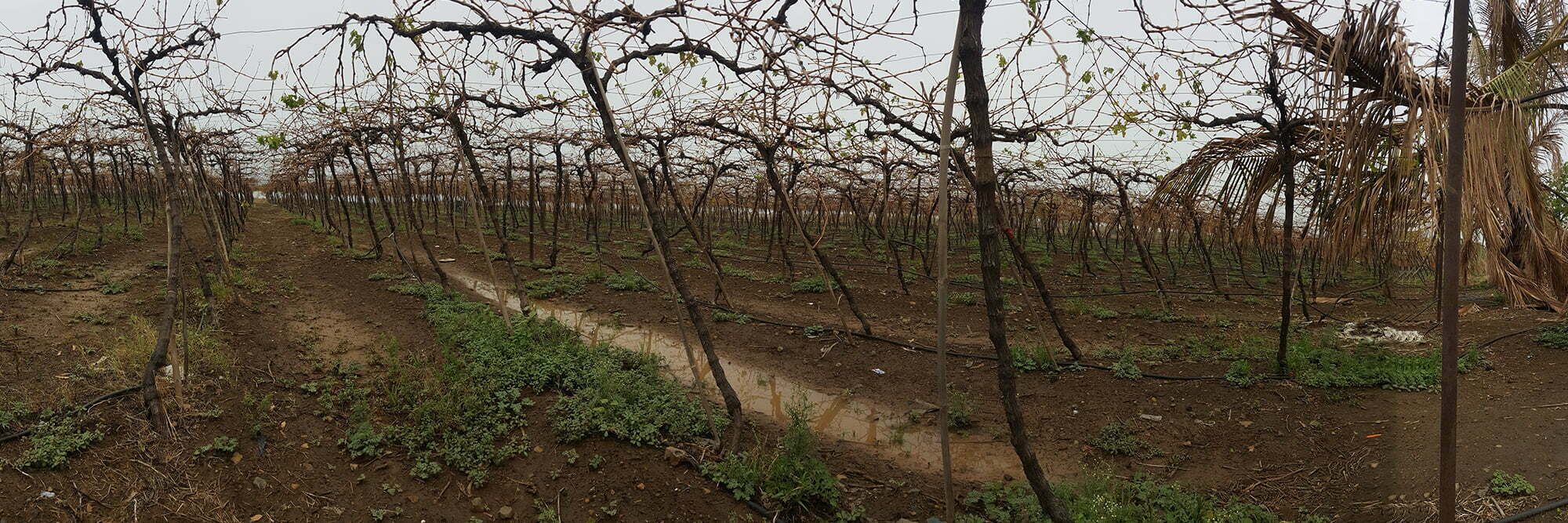Climate Change – Research and Practice
The IIHS School of Environment and Sustainability does cutting-edge, globally recognised research on climate change, focussing on cities as critical sites where adaptation, mitigation, disaster risk reduction and sustainable development goals can be met.
Projects
Deep engagement with the IPCC
IIHS has one of the largest concentrations of IPCC authors in a single South Asian institution with leadership positions in chapters across three major reports over the AR5 and AR6 cycles and two SR1.5 derivative reports – the Summary for Urban Policymakers and GCF-supported Summary for Financial Decision Makers. IIHS faculty have been deeply involved in intergovernmental processes, including the framing and negotiation of the Sustainable Development Goals, the Sendai Framework and the Paris Climate agreement.
IIHS is accredited by the World Meteorological Organization as an Observer Organisation for the IPCC.
IIHS faculty work on the convergence of research, policy and practice at the intersection of sustainability science, climate science and new urban science.
- Aromar Revi, Director, IIHS, is a Coordinating Lead Author of the 2018 IPCC Special Report on Global Warming of 1.5°C; the synthesis chapter on climate resilient development pathways of the IPCC Assessment Report 6 on Adaptation; and a member of the AR6 Synthesis Report core writing team. He was a CLA of the IPCC’s Assessment Report 5, Working Group II, on the chapter on Urban Areas.
- Jagdish Krishnaswamy, Dean, IIHS School of Environment and Sustainability, is a Coordinating Lead Author of the Special IPCC Report on Climate Change and Land, on Chapter 7: Risk management and decision making in relation to sustainable development.
- Chandni Singh, Senior Researcher, IIHS, is a Lead Author of the IPCC’s Assessment Report 6 on the regional chapter on Asia and a cross-chapter paper on ‘Cities and Settlements by the Sea’. She is a Contributing Author of the IPCC’s Special Report on 1.5°C.
- Amir Bazaz, Associate Dean, IIHS School of Environment and Sustainability; and IIHS School of Systems and Infrastructure, is a Contributing Author of the IPCC’s Special Report on 1.5°C.
Intergovernmental Science-Policy Platform on Biodiversity and Ecosystem Services (IPBES)
IIHS has been awarded ‘Observer Status to the ninth session of the IPBES Plenary’ with the Intergovernmental Science-Policy Platform on Biodiversity and Ecosystem Services (IPBES).
Jagdish Krishnaswamy, Dean, IIHS School of Environment and Sustainability (SES) , who is also been involved in IPCC as a coordinating lead author serves as the focal point within the organisation on all matters related to the IPBES along with Chandni Singh, who is also actively involved in IPCC. IIHS is thus one of the few institutions in the Global South which straddles themes that connect IPCC and IPBES.
IIHS has also anchored two derivative products: the 2018 SR1.5 Summary for Urban Policymakers and the 2021 Summary for Financial Decision makers.
IIHS is the Technical Support Unit for the 2022 Summary for Urban Policymakers, launched at COP26.
A few of IIHS’ notable projects in the Climate Change space include:
- The Adaptation at Scale in Semi-Arid Regions (ASSAR) research programme (2014-18)
- Energy innovation for low-cost housing in India and South Africa
- Reconfiguring Energy for Social Equity
- CapaCITIES (Migration, Livelihoods and Climate Resilience)
- Recovery with Dignity (2018-2021)
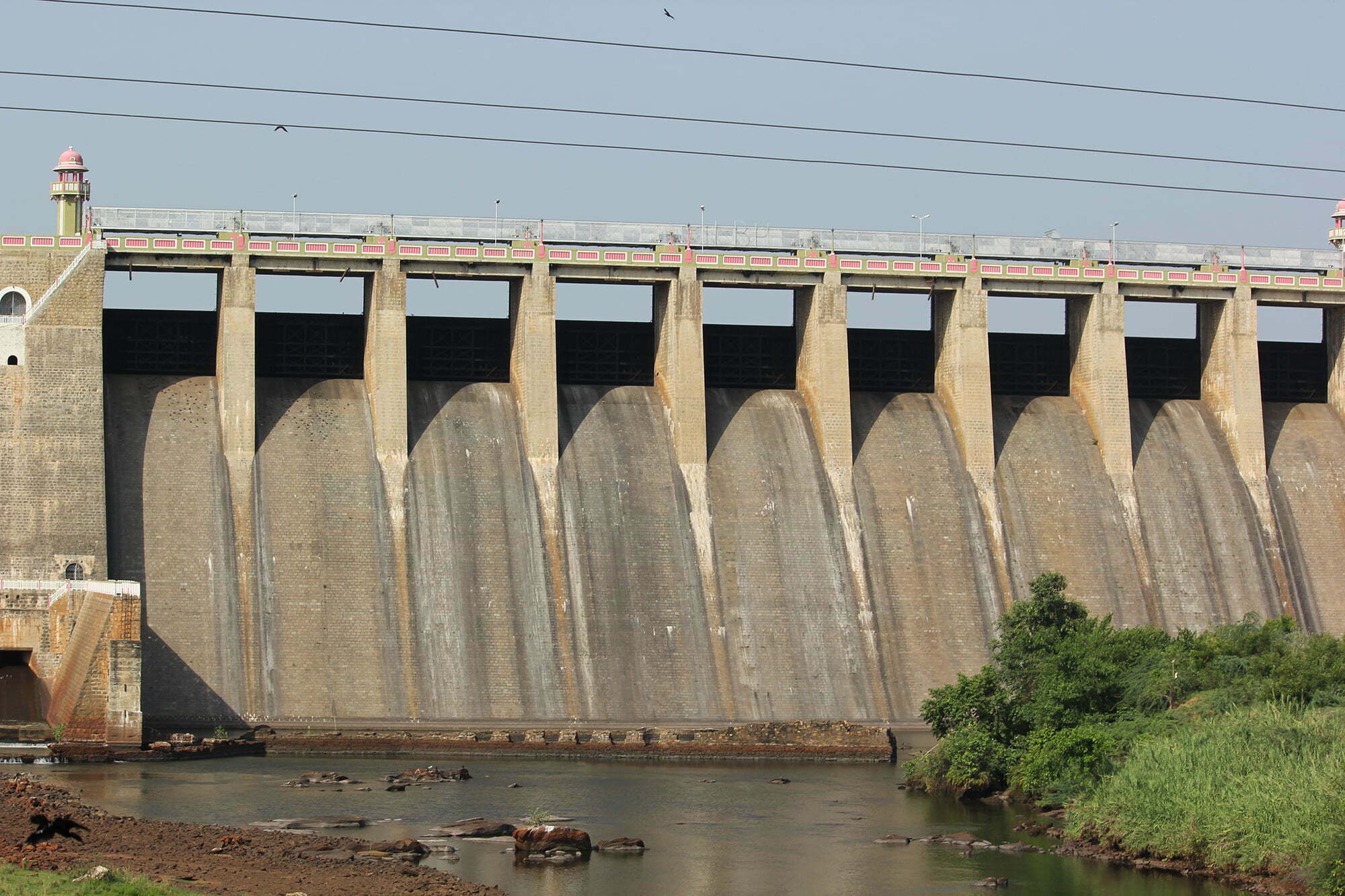
Publications

Climate change adaptation in Indian cities: a review of existing actions and spaces for triple wins.
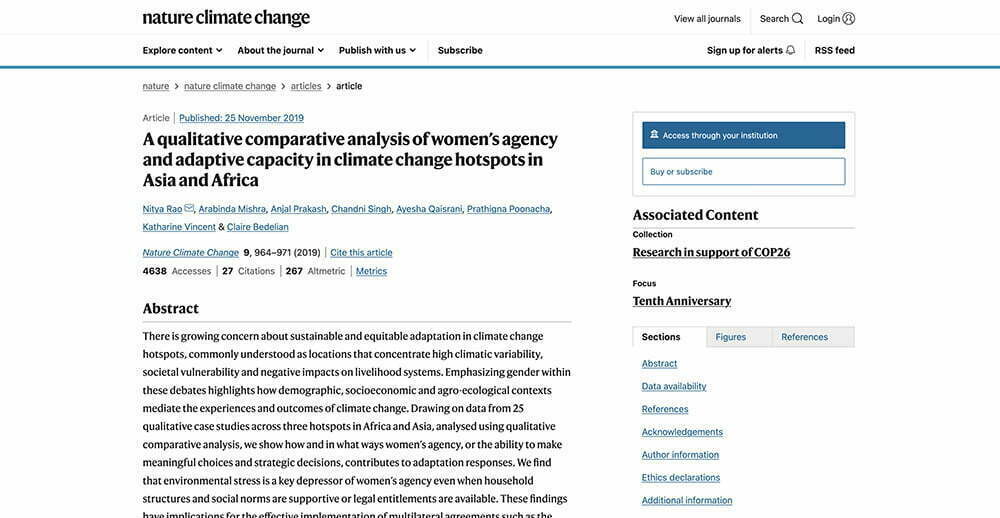
Women’s agency and adaptive capacity in climate change hotspots: A qualitative comparative analysis from Asia and Africa.
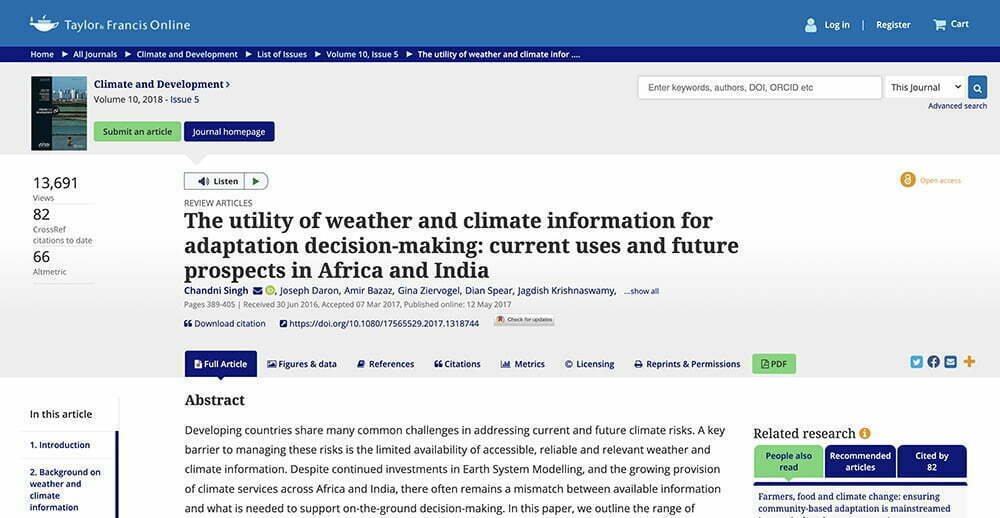
The utility of weather and climate information for adaptation decision making: current uses and future prospects in Africa and India.
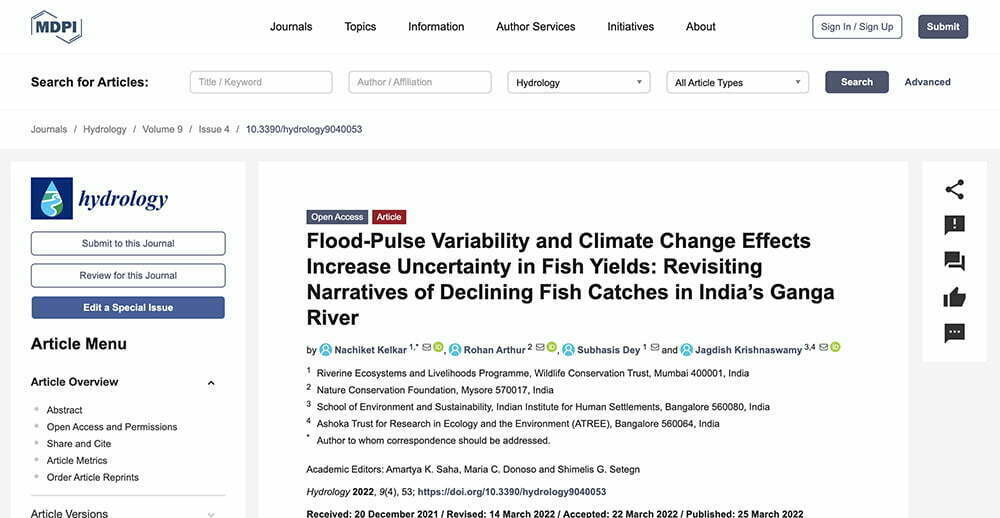
Flood-Pulse Variability and Climate Change Effects Increase Uncertainty in Fish Yields: Revisiting Narratives of Declining Fish Catches in India’s Ganga River.




